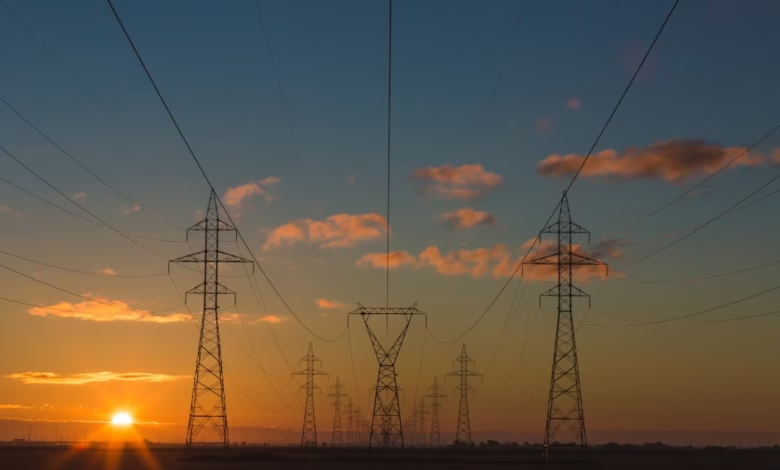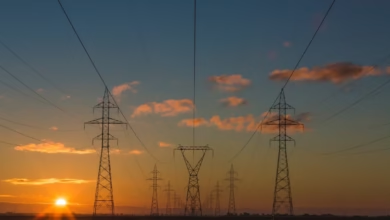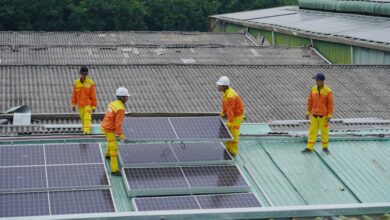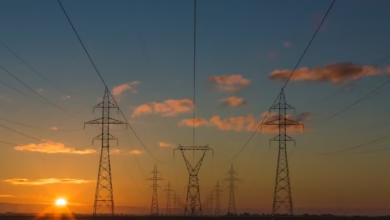Navigating Energy in Transportation: A Deep Dive into Fossil Fuels, Renewable Energy, and the Future of Electric Vehicles and Biofuels

The transportation sector is at the forefront of the global energy transition, grappling with the urgent need to reduce reliance on fossil fuels and adapt to the increasing demands for sustainable solutions. As climate change continues to pose significant challenges, the quest for cleaner, more efficient energy sources has never been more critical. This article delves into the dynamic landscape of energy in transportation, exploring the various fuel sources that power vehicles today, including electric vehicles (EVs), biofuels, and renewable energy options such as hydropower and wind energy.
We will begin by understanding the evolution of energy sources in transportation, transitioning from traditional fossil fuels to innovative renewable energy alternatives. Next, we will examine the pivotal role that electric vehicles and biofuels play in shaping the future of energy transportation, highlighting both the innovations that drive this change and the challenges that must be overcome. Finally, we will explore global energy trends, focusing on energy efficiency, energy storage solutions, and the policies that govern energy markets, emphasizing how these elements contribute to a sustainable transportation future. As we navigate through these topics, we will uncover how energy innovations and smart grids can help fortify energy security and create an economically viable pathway towards a greener tomorrow.
- 1. Understanding Energy Sources in Transportation: From Fossil Fuels to Renewable Energy Alternatives
- 2. The Role of Electric Vehicles and Biofuels in the Energy Transition: Innovations and Challenges
- 3. Exploring Global Energy Trends: Energy Efficiency and the Future of Sustainable Transportation Solutions
1. Understanding Energy Sources in Transportation: From Fossil Fuels to Renewable Energy Alternatives
The transportation sector plays a pivotal role in global energy consumption, traditionally relying on fossil fuels such as gasoline and diesel. These energy sources have powered vehicles for over a century, but their environmental impact has escalated concerns about climate change and energy security. As a result, there is a pressing need for an energy transition towards more sustainable alternatives.
Renewable energy sources, including solar power, wind energy, and hydropower, are increasingly becoming viable options for transportation. Electric vehicles (EVs), powered by renewable energy, represent a significant shift in energy efficiency and emissions reduction. By leveraging smart grids and energy storage technologies, we can maximize the use of green energy in EV charging, reducing reliance on fossil fuels.
In addition to electric vehicles, bioenergy is gaining traction as a sustainable fuel alternative. This form of renewable energy can be sourced from organic materials, offering a carbon-neutral option that complements the growing energy markets for sustainable transportation fuels. Moreover, hydrogen energy is emerging as a promising player in the energy landscape, particularly for heavy-duty transport where battery solutions may be less practical.
Nuclear energy also plays a role in the energy mix, providing a stable and low-carbon source of power that can support the electrification of transportation. As countries invest in energy innovations and policy frameworks, the integration of these diverse energy sources becomes crucial in achieving energy security and meeting global energy trends.
The ongoing energy transition is not without its challenges. Energy economics, including the costs associated with energy imports and exports, must be carefully navigated. Investments in energy R&D are essential to develop advanced technologies like carbon capture, further enhancing the sustainability of energy transportation.
Ultimately, the shift from fossil fuels to renewable energy alternatives is critical in mitigating climate change while ensuring a secure and efficient energy future. As we embrace distributed energy systems and explore offshore energy potentials, the path forward is illuminated by a commitment to innovation and sustainability in transportation.
2. The Role of Electric Vehicles and Biofuels in the Energy Transition: Innovations and Challenges
The transition to sustainable energy sources is crucial for addressing climate change and enhancing energy security. Electric vehicles (EVs) and biofuels play pivotal roles in this energy transition, serving as viable alternatives to traditional fossil fuels while promoting energy efficiency and supporting global energy trends.
Electric vehicles are at the forefront of innovations in energy transportation. They utilize renewable energy sources, such as solar power and wind energy, to reduce dependence on fossil fuels. Advances in energy storage technologies have significantly improved EV performance, enabling longer ranges and faster charging times. Smart grids enhance this system by managing energy distribution efficiently, ensuring that EVs can be charged using clean energy during off-peak hours, thereby optimizing energy investments.
Biofuels also contribute meaningfully to the energy transition. Derived from organic materials, biofuels are a form of bioenergy that can significantly lower carbon emissions compared to conventional fuels. Innovations in biofuel production processes, such as advanced fermentation and algae cultivation, have made it possible to produce sustainable biofuels at scale. However, challenges remain, including the need for energy policy frameworks that encourage biofuel adoption while ensuring that food security and land use are not adversely affected.
Despite their potential, both EVs and biofuels face hurdles in the broader context of the energy transition. The infrastructure for EV charging needs significant expansion to accommodate the growing number of electric vehicles on the road. Additionally, the economic viability of biofuels can be affected by fluctuating energy markets and competition with other renewable energy sources. Moreover, the integration of these technologies into existing energy systems must be managed carefully to avoid disruption.
To address these challenges, energy R&D is essential. Continued investment in new technologies, such as hydrogen energy and carbon capture, can further enhance the sustainability of both electric vehicles and biofuels. As countries increasingly focus on energy exports and imports to meet climate goals, the development of a diverse energy portfolio that includes thermal energy, offshore energy, and hydropower will be necessary for achieving a robust energy transition.
In summary, electric vehicles and biofuels represent significant strides toward reducing reliance on fossil fuels and promoting green energy. However, addressing the associated challenges through innovative solutions and supportive energy policies is crucial for realizing their full potential in the global energy landscape.
3. Exploring Global Energy Trends: Energy Efficiency and the Future of Sustainable Transportation Solutions
As the world grapples with the pressing challenges of climate change and energy security, global energy trends are increasingly highlighting the importance of energy efficiency and sustainable transportation solutions. The shift towards renewable energy sources is not just a necessity; it is becoming an integral part of energy policy across various nations. This transition involves a comprehensive approach to energy economics and investment, focusing on minimizing reliance on fossil fuels while enhancing the role of green energy.
Electric vehicles (EVs) are at the forefront of this energy transition, representing a crucial step towards reducing greenhouse gas emissions. The surge in EV adoption is supported by advances in energy storage technologies, which enable efficient use of solar power and wind energy. As countries invest in smart grids and distributed energy systems, the integration of renewable energy into transportation networks becomes feasible, allowing for a more resilient energy market.
Bioenergy, including biofuels derived from organic materials, plays a significant role in diversifying energy sources for transportation. This alternative fuel source not only helps reduce carbon emissions but also promotes energy security by utilizing locally available resources. Additionally, innovations in hydrogen energy are emerging as a promising solution for long-distance transportation, providing an efficient means of harnessing thermal energy for vehicles.
The future of transportation is also closely tied to energy innovations that include carbon capture technologies, which aim to mitigate the environmental impact of fossil fuel usage. By investing in offshore energy and hydropower projects, nations can further diversify their energy portfolios, ensuring a more sustainable and secure energy future.
As we navigate these global energy trends, the need for comprehensive energy R&D initiatives becomes increasingly apparent. Policymakers must prioritize energy imports and exports strategies that align with sustainable practices, ultimately shaping a transportation landscape that is not only efficient but also resilient against the challenges posed by climate change. The focus on energy efficiency and the development of sustainable transportation solutions will be pivotal in shaping the future of global energy markets.
In conclusion, the landscape of energy in transportation is undergoing a transformative shift, driven by the urgent need for sustainable solutions in the face of climate change. As we explored, the transition from fossil fuels to renewable energy sources is not just a trend but a necessity for enhancing energy security and achieving energy efficiency. Electric vehicles (EVs) and biofuels are at the forefront of this energy transition, showcasing innovations that promise to reduce our dependence on traditional fossil fuels while addressing the challenges of energy storage and distribution.
The exploration of global energy trends reveals a growing emphasis on green energy solutions such as solar power, wind energy, and hydropower, which are integral to the future of sustainable transportation. Furthermore, advancements in energy policy and investments in energy R&D are crucial for fostering smart grids and carbon capture technologies, ultimately leading to reduced emissions and enhanced energy economics.
As we continue to innovate and invest in diverse energy markets—ranging from hydrogen energy to thermal energy—collaboration among governments, industries, and consumers will be vital in shaping a resilient and sustainable transportation ecosystem. By embracing these changes and prioritizing distributed energy solutions, we can pave the way for a cleaner, greener future that benefits both our planet and our communities. The road ahead is filled with opportunities, and as we navigate this energy transition, it is essential to remain committed to developing and implementing effective strategies that support our collective goals for a sustainable, energy-efficient future.





